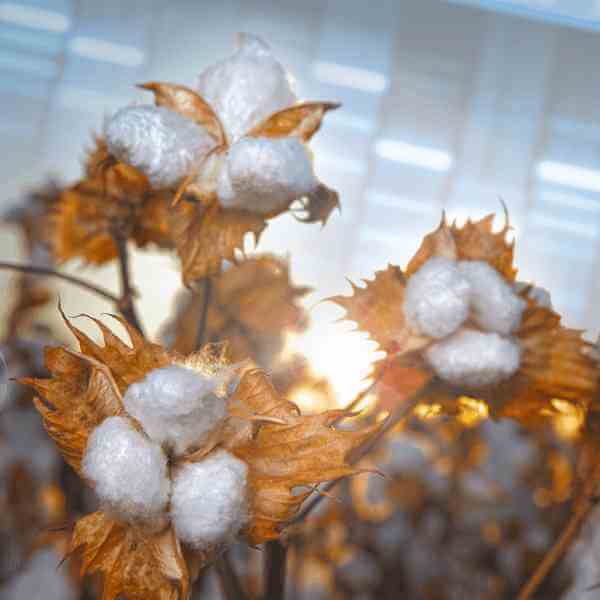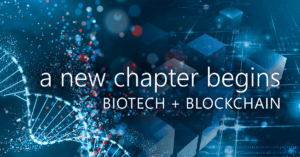
Genetic markers for regional cultivars persist in cotton fibers and can be detected in our proprietary assay
Stony Brook, NY. February 27, 2017 — Applied DNA Sciences announced today that it has identified lead genetic markers that are unique to certain cotton cultivars grown in Uzbekistan, where forced human labor is used to cultivate the cotton. To date, the biomarkers have been tested in raw and ginned cotton. The testing of yarn and finished textiles is forthcoming.
Applied DNA is looking for partners to aid in halting forced labor in cotton fields, while facilitating a global collaboration in identifying and highlighting Uzbek cottons that are harvested by modern machinery specifically without forced labor.
The Company offers a molecular tagging and authentication service to brands and retailers who want to exclude adulteration by forensically proving the origin of their cotton. The platform is based on a unique molecular tag, known as “SigNature® T”, applied at the point where locally grown cotton is ginned, and forensically authenticated at each stage of the supply chain to allow traceability for fibers to finished goods back to their origin. To date, multiple brands and retailers have SigNature T-tagged over 150 million pounds of US-grown cotton.
Applied DNA proposes that machine harvesting and modern ginning be introduced to the Uzbek cotton industry as soon as possible, perhaps funded by governments, NGOs and the global cotton industry. Molecular markers supplied by the company could ensure that every relevant fiber is recognizable as free of forced labor. In collaboration with leaders within the cotton industry and cotton research, Uzbek cotton fibers could be introduced to the global market as a superior upland cotton, untainted by ethical compromise.
Said Dr. James Hayward, President and CEO of Applied DNA: “Even if a retailer’s brand were surreptitiously adulterated with Uzbek cotton, the damage to their equity would be irreparable. When combined with a program of molecular tagging at the source, our products and services can de-risk supply chains for every cotton retailer, brand and manufacturer.”
According to the Cotton Campaign, every year the Uzbek government forces more than a million Uzbek citizens — including teachers, doctors and nurses — to work long hours picking cotton for state-run industries under threat of penalties, including loss of their jobs or education. The government of Uzbekistan operates the largest forced-labor system of cotton production in the world. There is no region in Uzbekistan excluded from this system, so no Uzbek cotton is free from forced labor.
Kirill Boychenko, Coordinator of the Cotton Campaign at the International Labor Rights Forum, stated: “DNA technology can help businesses and regulators enhance traceability and transparency in global supply chains. Applied DNA’s advances in molecular tagging and cotton genotyping can provide technical guidance on cotton produced with forced labor from countries like Uzbekistan and Turkmenistan that can then be used by brands, retailers, supply chain intermediaries and law enforcement to ensure responsible sourcing.”
More than 250 brands and retailers have signed, “The Cotton Pledge,” promising not to knowingly source cotton from Uzbekistan. Growing consciousness of unethically-produced cotton among consumers is apparent in the results of a recent Harris Poll: roughly three in five Americans (61%) say if they discovered a brand made their bedding/clothing products from raw cotton that was picked by child/forced laborers, they would no longer purchase from that brand.
The United States recognizes Uzbek cotton as a product made with forced labor and has stopped goods made with Uzbek cotton at the border under a law prohibiting import of goods made with forced labor. The California Transparency in Supply Chain Act requires businesses to report their efforts to combat forced labor in their supply chains. The Modern Slavery Act in the United Kingdom requires businesses that trade in at least £36 million in goods a year to report what steps, if any, they are taking to address forced labor in their supply chains. Until today, however, there has been no mechanism to discriminate fibers of Uzbek origin.Andrew Wallis, OBE, the catalyst behind the Modern Slavery Act, and Founder and CEO of Unseen, a UK charity that works towards a world without forced labor stated: “The innovative use of technology by Applied DNA Sciences to tackling some of the world’s most complex problems – transparency in supply chains and modern forced-labor abuses – is to be applauded.”
Earlier this month, the French Parliament adopted a much-awaited law, which applies only to French companies, enforcing a “public vigilance” for corporations of their supply chains, for human rights and the environment. Similar laws are under consideration in Switzerland and the Netherlands.
Uzbekistan is one of the largest exporters of cotton; sixth in the global economy. The countries that import the largest quantities of Uzbek cotton are also the countries that rank among the largest suppliers of finished textiles to the USA and UK, such as Bangladesh and China.
Hidden labor rights abuses in global supply chains are increasingly being scrutinized by consumers, governments and intergovernmental organizations. It can be challenging for global brands to determine potential risks at every stage of the complex supply chains inherent in goods produced with cotton. This new technology offers companies aiming to minimize risk an opportunity for ensuring cotton made with forced labor from Uzbekistan does not slip into the goods they buy and produce.
Recently, in a report submitted by the International Labour Organization (ILO), a United Nations Agency, to the World Bank, third-party observations made clear that progress against forced labor in Uzbekistan is making significant strides. Uzbekistan has phased-out organized child labor, and the “risk has been reduced to the point where child labour (sic) has become socially unacceptable.” However, forced labor does remain a risk for higher-level students, the staff of public and private agencies, and the staff of medical facilities.
About Applied DNA Sciences
Applied DNA Sciences makes life real and safe by providing biotechnology-driven solutions to help protect products, brands, entire supply chains, and intellectual property of companies, governments and consumers from theft, counterfeiting, fraud and diversion. Patented botanical DNA solutions can be used to identify, tag, track, and trace products, to help assure authenticity, traceability and quality of products. SigNature DNA is at the heart of a family of uncopyable, security and authentication solutions such as SigNature® T and fiberTyping®, targeted toward textiles and apparel, DNAnet®, for anti-theft and loss prevention, and digitalDNA®, providing powerful track and trace. All provide a forensic chain of evidence, and can be used to prosecute perpetrators.
Go to adnas.com for more information, events and to learn more about how Applied DNA Sciences makes life real and safe. Common stock listed on NASDAQ under the symbol APDN, and warrants are listed under the symbol APDNW.
Forward-Looking Statements
The statements made by APDN in this press release may be “forward-looking” in nature within the meaning of the Private Securities Litigation Act of 1995. Forward-looking statements describe APDN’s future plans, projections, strategies and expectations, and are based on assumptions and involve a number of risks and uncertainties, many of which are beyond the control of APDN. Actual results could differ materially from those projected due to our short operating history, limited financial resources, limited market acceptance, market competition and various other factors detailed from time to time in APDN’s SEC reports and filings, including our Annual Report on Form 10-K filed on December 6, 2016, and our subsequent quarterly report on Form 10-Q filed on February 9, 2017, which are available at www.sec.gov. APDN undertakes no obligation to update publicly any forward-looking statements to reflect new information, events or circumstances after the date hereof to reflect the occurrence of unanticipated events, unless otherwise required by law.


